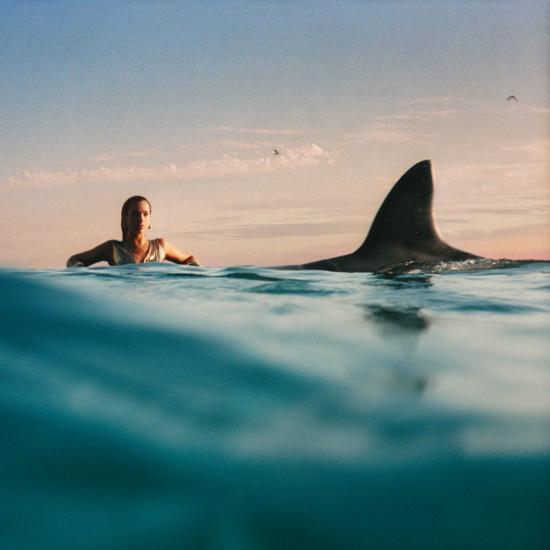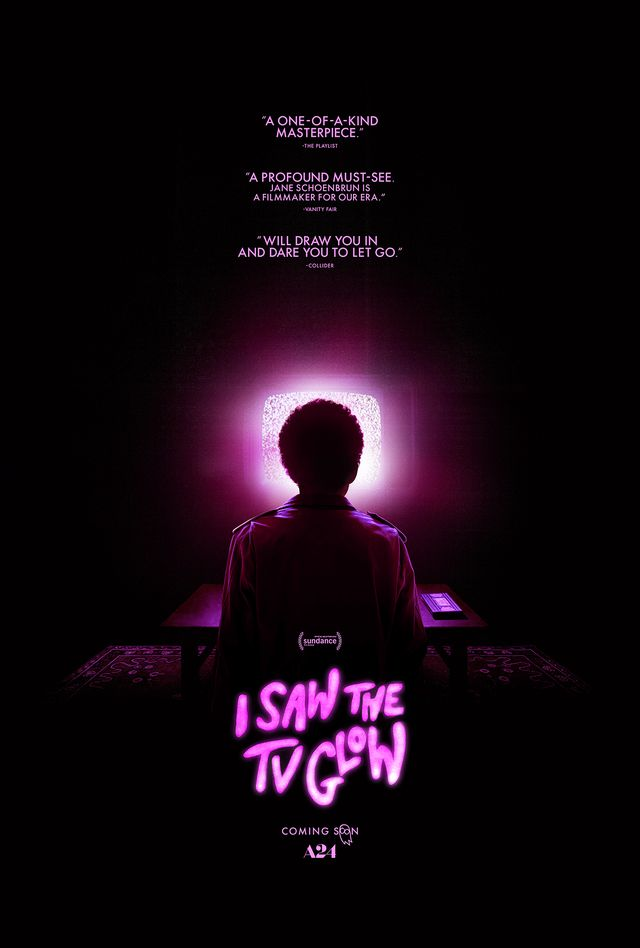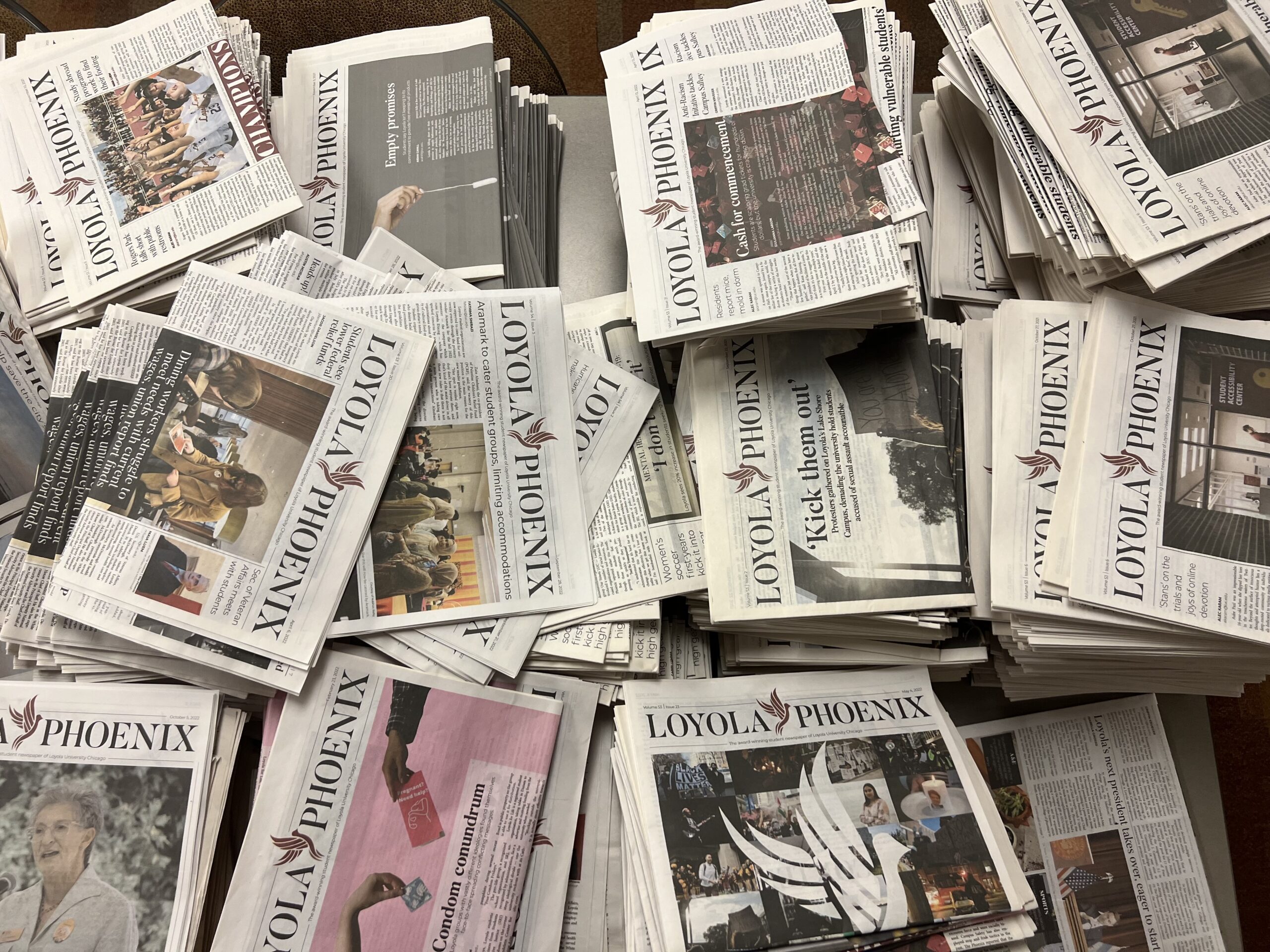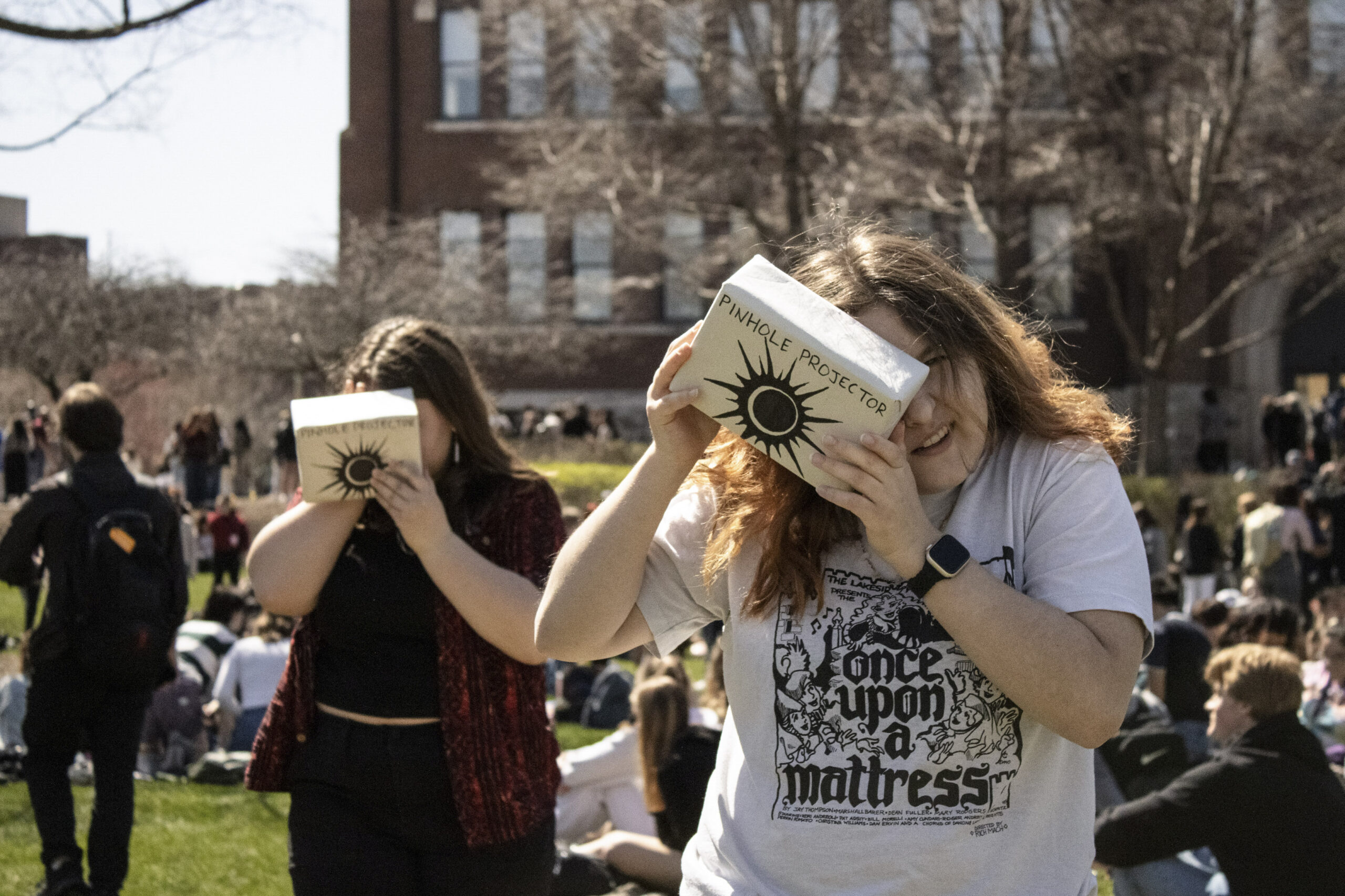“Illinoise,” the musical inspired by the Sufjan Stevens’ album “Illinois” delights and confuses at the Chicago Theater.
Feeling the ‘Illinoise’ at the Chicago Shakespeare Theater

“Welcome to ILLINOISE,” reads the rusted, green billboard in the middle of The Yard, the new theater space of Chicago Shakespeare Theater.
Decorated like an antique postcard, the sign parallels three upside-down spruce trees hanging from the ceiling. Under the trees, rusted scaffolding resembling the L holds up platforms for a small orchestra and three singers.
This set is part of Jackie Sibblies Drury and Justin Peck’s theatrical adaptation of Sufjan Stevens’ 2005 album “Illinois.” Playing the album’s songs live, the show creates a three-act narrative of a group of friends telling stories around a campfire.
The show opens with “Three Stars (or, Concerning the UFO Sighting near Highland, Illinois),” followed by “The Long Hike (or, The Black Hawk War…).” Both numbers introduce the protagonist Henry, a memoirist whose story surrounds his childhood friend Carl, Shelby and Douglas — each members of a complicated love affair.
As Carl, Shelby and Douglas exit the stage, an ensemble of characters join Henry to tell stories around a campfire. Unfolding through a sequence of vignettes assigned to each character, Wayne, Morgan, Jo Daviess and Clark make up the rest of Act I — disjointed from the rest of the plot.
While the characters add some structure to the story, they’re unattended to after their designated musical number. They don’t have arcs or traits, and the only meaning given to them is in the playbill, which doesn’t translate to the stage.
The first vignette is “Jacksonville,” Morgan’s story — the strongest performance of the night. A storyteller and debater, Morgan’s number features a dance-off between Morgan and a character seemingly representing a tap-dancing Andrew Jackson.
Complex choreography effectively conveyed Morgan’s contention with the past. Paired with intricate tap-dancing, the live arrangement of “Jacksonville” intensified the original through hard-hitting chanting and electric guitar.
The vocalists, covering songs while the dancers act below, all accomplish the Herculean task of covering Stevens’ inimitable, ghostlike voice.
Vocalist Elijah Lyons takes the lead on most of the songs. His delivery, while emotional, was vocally overbearing — especially for covering Stevens’ wistful style of singing.
Tasha Viets-VanLear shined in the few songs she performed, delivering a faithful but unique adaptation with angelic vocals.
Shara Nova — a member of Stevens’ “Illinoisemaker Choir” that performed on the 2005 album — was the most faithful and emotive of the singers, making her the most memorable.
Act I ends with “The Man of Metropolis Steals Our Hearts,” with actor Robbie Fairchild as Clark bringing an uplifting presence to the stage, wearing a bright blue Superman T-shirt and equally bright grin. Dancing alone for most of the song, he is comforted when the rest of the cast joins him, now all donning Superman shirts.
Together, they embody the lyrics, “We celebrate our sense of each other / We have a lot to give one another.”
After this number, Henry is finally persuaded to share his story. He opens his notebook, and Act II begins.
The act surrounds the inner-workings of the romantic dynamics at play, a “true tale about first loves,” according to the playbill.
In one of the album’s more well-known tracks, Henry takes a trip to “Chicago” alongside Carl in a standout performance from an act centered around Henry. The original song’s instrumental complexity was adapted impressively well considering the layers of instruments compiling the song.
The choreography for the song was the show at its creative peak, with dancers holding flashlights to emulate cars on a highway. Horns in the song became car horns as dancers pressed on a steering wheel prop.
The climax of Henry’s act — “The Predatory Wasp of the Palisades Is Out to Get Us!” — felt out-of-tune. The vocals were too intense and the instrumental adaptation unsuccessfully executed both the power and subtlety of the original, veering completely off the source material towards the end, even inserting an incredibly out-of-place high note.
After Henry’s story, the ensemble return to the campfire to begin the third and final act, where the cast comforts him having learned of his tragedy.
With all of the characters together again, the play assumes a more relaxed, celebratory tone with Douglas featuring in a reprise of “Chicago.”
The play ends on a high note with “The Tallest Man, the Broadest Shoulders,” the second most captivating performance of the night. The joyous adaptation reverberated through the audience, actors and ensemble, inviting everyone to clap along.
For the epilogue, Henry dances with his notebook with a look of awe on his face — finally having come to terms with his past through telling his story.
While the story was convoluted, the music of “Illinoise” made the show worth it.
“Illinoise” isn’t perfect, but is anybody’s story?
“Illinoise” is playing at the Chicago Shakespeare Theater through Feb. 18. Tickets start at $130.
Featured image courtesy of Liz Lauren / The Chicago Shakespeare Theatre










